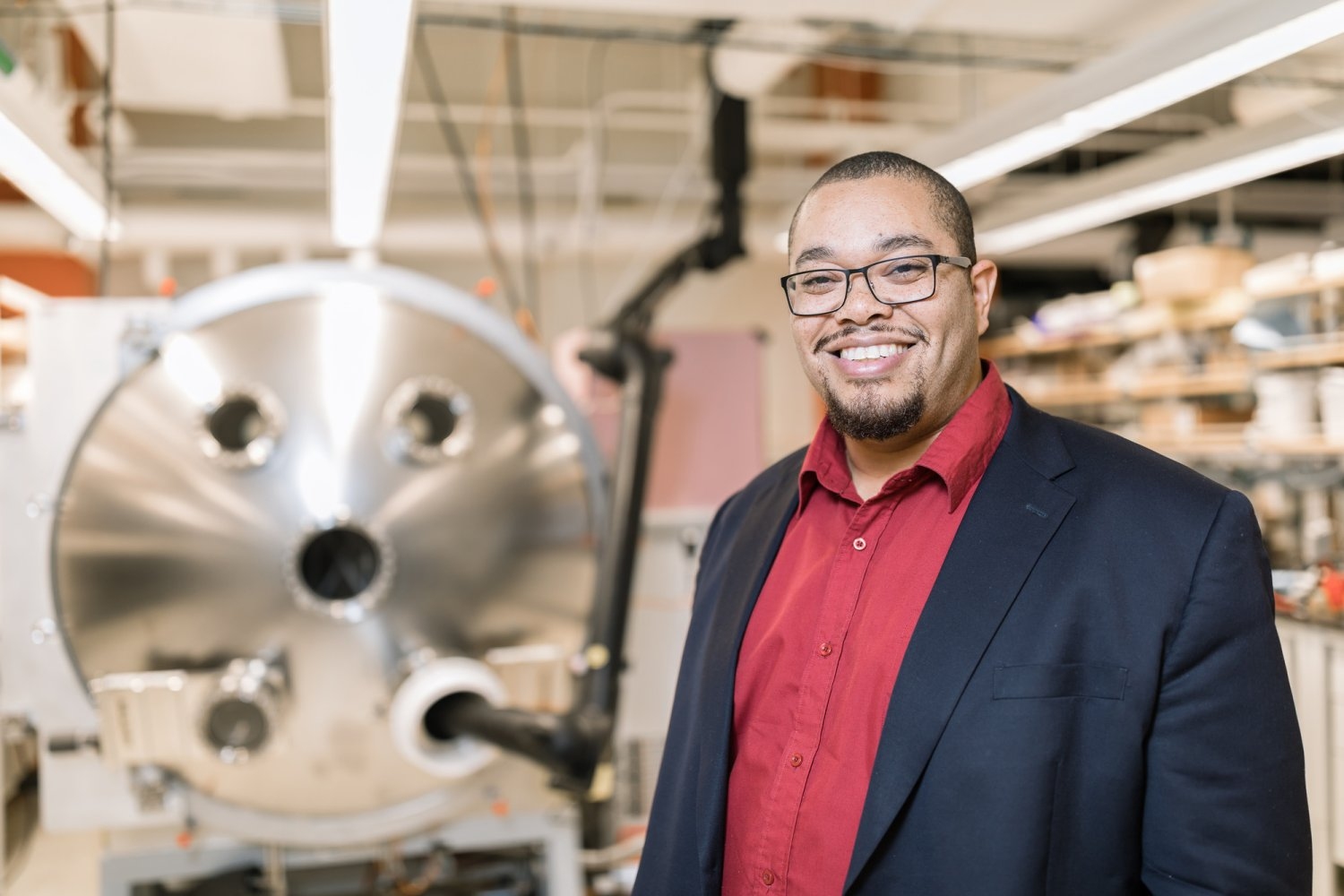
Mechanical engineering associate professor receives the NSF’s highest honor for an outstanding early-career scientist or engineer.
Department of Mechanical Engineering
The National Science Foundation (NSF) today named Asegun Henry, an associate professor in MIT’s Department of Mechanical Engineering, as a 2023 recipient of its Alan T. Waterman Award. This award is the NSF’s highest honor for early-career researchers and provides funding for research in any science or engineering field.
This is the second year NSF has chosen to honor three researchers with the award. Henry is the sixth faculty member from MIT to receive this honor in its 47-year history, and is only the second mechanical engineer to ever win the award. In addition to a medal, Henry and his fellow awardees, Natalie S. King of Georgia State University and William Anderegg from the University of Utah, will each receive $1 million over five years for research in their chosen field of science.
“I am thrilled to congratulate this year’s Waterman awardees, three outstanding scientists who are courageously tackling some of the most challenging societal problems through their ingenuity and innovative mindset,” says NSF Director Sethuraman Panchanathan. “Their pioneering accomplishments are precisely what the Waterman Award was created to recognize, and I look forward to their tremendous contributions in the future.”
NSF recognizes Henry as an international thermal science and engineering leader. Henry has made breakthrough advances in nanoscale heat transfer and high-temperature energy systems. He directs the Atomistic Simulation and Energy (ASE) Research Group at MIT, focusing on heat transfer at the atomic level. He also works on developing technologies that can help mitigate climate change, addressing many problems from the atomic to the gigawatt scale.
Henry and colleagues have led the development of several technological breakthroughs, setting a world record for the highest-temperature pump, using an all-ceramic mechanical pump to move liquid metal above 1,400 degrees Celsius, as well as the world record for thermophotovoltaic efficiency.
“It has been challenging to push the field towards acceptance of new ideas, and it has been a path fraught with resistance and questioning of the validity of our results,” says Henry. “Receiving this award is vindicating and will impact my career greatly as it helps validate that the advances we’ve pioneered really do register as major contributions, and I pride myself on the impact of my work.”
The Waterman Award will be presented to Henry at a ceremony held in Washington on May 9 during the National Science Board meeting.
